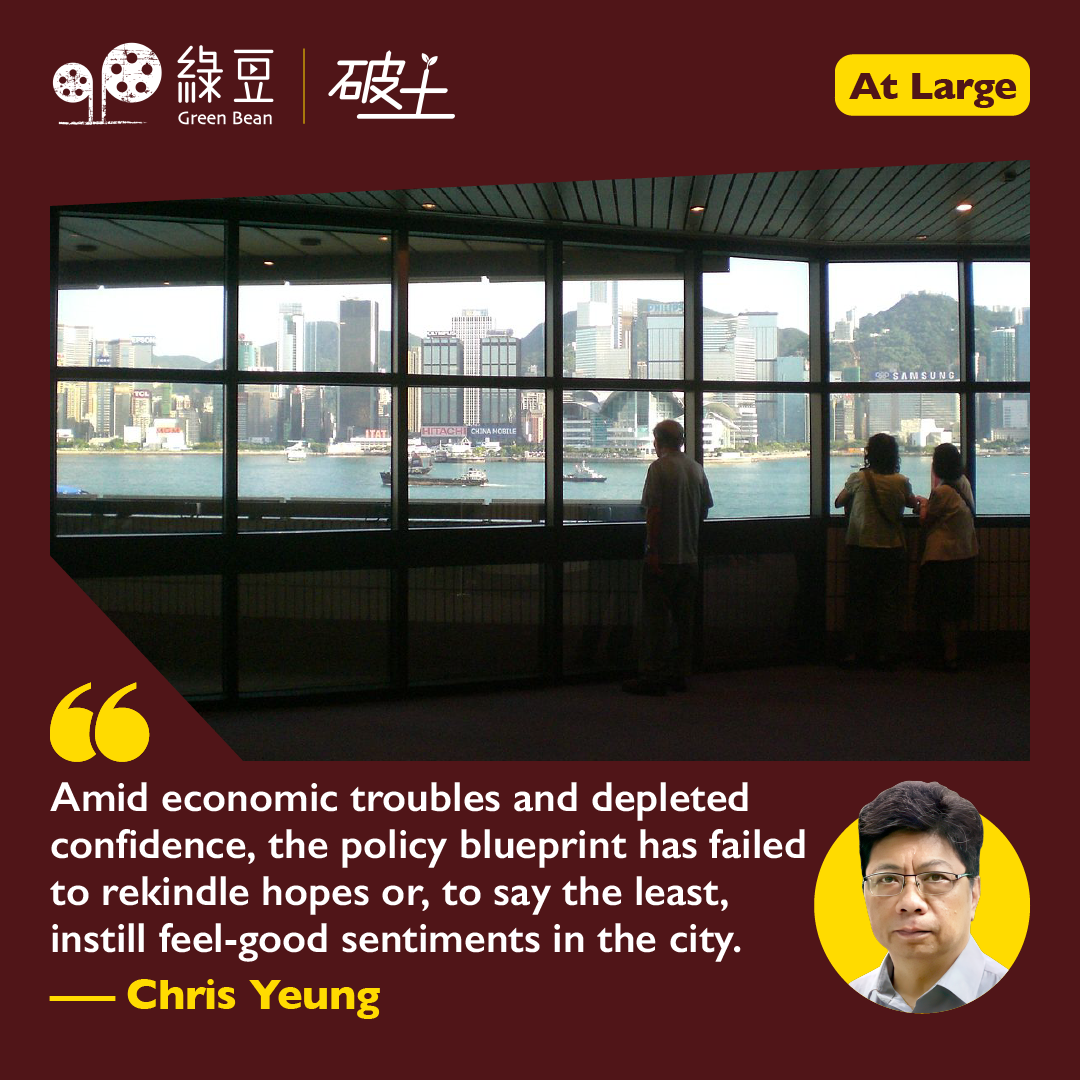Policy blueprint full of details, but fails to ignite hopes

Chief Executive John Lee caused a stir on Wednesday when he said in his 2024 Policy Address taxi fleets should provide service information in Arabic, which was aimed at luring Middle Eastern tourists.
Taxi drivers reacted with awe and disbelief when asked by reporters what if they have to learn Arabic. Some dismissed the idea as a “waste of breath.” Netizens were excited with Lee’s offer of a nerve-wracking idea in his lengthy speech.
Speaking on Friday, commerce minister Algernon Yau sought to clear the air, saying taxi drivers would not be required to learn the language, but added it would be fine if drivers could express greetings or thanks in Arabic to Middle Eastern tourists.
That the “learn Arabic” initiative aimed to boost tourism has emerged as a talking point in Lee’s third policy address on social media is indicative of the lack of a “wow factor” in the speech that could give a big boost to public confidence in the Government’s ruling blueprint.
Lee’s third policy address in his five-year term has been seen as a make-or-break blueprint in the Government’s attempt to shift the focus from national security and post-Covid recovery measures to revitalising the economy and easing livelihood pain.
Though flying the banner of “reform” (the term appeared 41 times in the speech) as championed by President Xi Jinping, the blueprint is long in the work list of various government bureaus and departments, but short in envisioning the future of Hong Kong and rolling out a roadmap of “from stability to prosperity.”
Basic housing units
A major focus of media coverage of the policy address on the day the speech was delivered and the following day was a plan to get rid of the notorious subdivided flats.
The Government plans to regulate substandard subdivided flats by requiring owners to convert their homes into “basic housing units” that meet legal requirements, such as having windows, toilets and a minimum size of 86 sq ft.
Of the estimated 110,000 subdivided flats in the city, about 30 percent, of more than 30,000, are considered as substandard.
A 12-18 month registration period is expected to begin in the fourth quarter of next year, with owners given a grace period of up to two years following registration to comply with the new rules.
The Government has not given an estimate of the number of “basic housing units” that will be available when the new rules, which will be passed into law, take effect. To be fair, it is difficult to tell. But if so, how will those who live in substandard flats now be housed?
Officials said they are confident that the plan will not leave residents homeless, adding there will be plenty of public housing available. If so, will the queue of public housing aspirants get longer as a result of the move to eradicate substandard subdivided flats?
Subdivided flats residents were unsure. Some told journalists they fear being made homeless after their units are found substandard, but are unable to afford the “basic housing units”. The monthly rent of a “basic housing unit” is expected to double the present subdivided flat.
The long-awaited plan to get rid of the notorious housing has failed to win applause, but left a list of questions unanswered.
Just like fireworks
Meanwhile, a plan to slash duty for liquor with an import price of more than HK$200 from 100 percent to 10 percent for the portion above HK$200 has drawn sharply divided views.
It was welcome by the tourism, food and beverage sectors as a boost to their business. But health experts fear it could boost alcohol consumption that could lead to half of all alcohol-related cancers.
Like fireworks, the “basic housing units” , “alcohol tax cut” and the package of initiatives rolled out by Lee on Wednesday had caught the eyes of a certain portion of the population.
They either still cared about or would like to know what the Government is up to with expectation – until after they might have found the glitters soon vanished in darkness.
A regular poll conducted by the independent Hong Kong Public Opinion Research Institute after the speech was delivered found fewer people had listened to it. Of the 626 residents polled, only 384, or 55 percent, did. The figure in the 2023 post-address poll was 72 percent and 66 percent in 2022.
Of those who had listened, 27 percent said they were satisfied, down from 34 percent in 2023.
Amid economic troubles and depleted confidence, the policy blueprint has failed to rekindle hopes or, to say the least, instill feel-good sentiments in the city.





